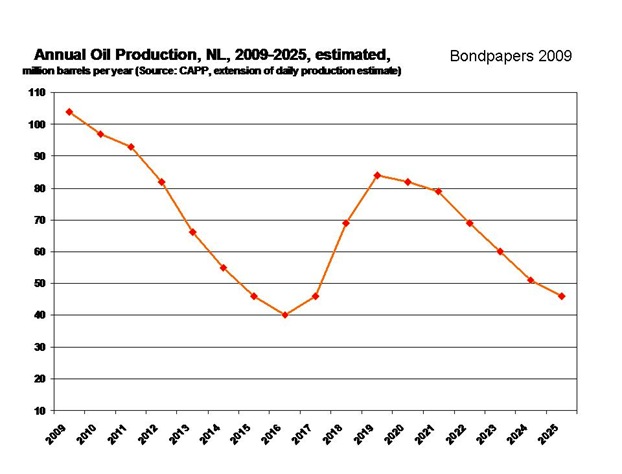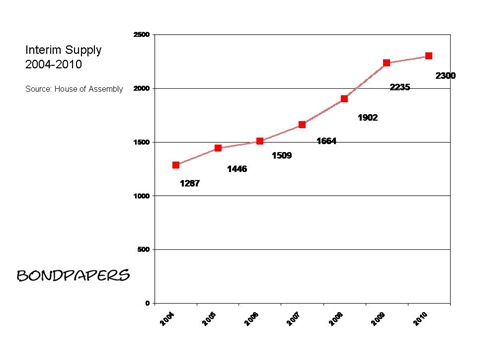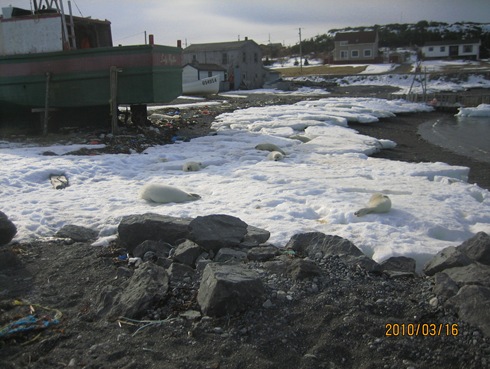Political parties that come into power without direction tend to fall back on a couple of crutches to help them get through.
One is inertia. They just keep going with what happened before. Sometimes they just take ideas pushed up by the bureaucracy but that is really just another form of carrying on with the set of assumptions everyone knows.
The collapse of health regions and education districts into just a handful is just such an idea. Faced with an apparent financial problem – which the new Williams administration should have known all about before they got to office, by the way – the novice Premier took a couple of suggestions pushed forward by bureaucrats as a way of saving cash.
Poof: four health regions and five education districts. The changes didn’t actually deal with the problem nor does it appear they were thought through. Yet they were quite accepted quite readily as the election commitment of growing our way out of economic tough times - “Jobs, jobs, jobs” - was replaced by the staples of cuts, freezes and re-organization.
That’s not really all that surprising. After all, this was an administration that had not even been able to figure out what its departments were going to be called. That decision wouldn’t arrive for another month.
The noobs elected in October 2003 took five months to get enough material together to present to the House of Assembly. But even then, the overwhelming majority of the bills were modest amendments to existing laws that had been in train before the election.
Those that weren’t already planned by the old administration didn’t produce dramatic changes of direction for government. Amendments to the Elections Act, for example, mandated that a by-election had to be called within 60 days when a vacancy occurred. The old version dated from the early 1990s and set the maximum at 90 days.
For a government that supposedly had a plan and was keen to get to work on its new agenda, there wasn’t much sign of that new agenda from the first session of the legislature.
Aside from a toothless lobbyist registry, the Transparency and Accountability Act was the only major new piece of government business. Duly passed after a cursory debate the government then didn’t bother to put the law into force until two years later. Even then, the bill only took effect two afters later still, that is, four years after it was passed.
Another new bill, the Court Security Act, is still not in force and likely won’t be implemented.
It’s only when one goes back and looks at that first session in hindsight that one can see exactly how little new material the brand new government brought to its first legislative session.
Directionless governments also have difficulty making decisions. Most governments find decisions difficult to make because they issues involved are enormous and the opportunity to make a tragic mistake is great. Contrary to what people may think politicians are sincere people trying to do what they think is best. But in a directionless administration, all those sincere people have to struggle to agree on what “best” actually means.
Now by directionless, we mean nothing more than a group of people who have not learned how to work together effectively as a team. Lack of direction may also arise where political power generally or on a given issue is so diffuse that no one individual or group of individuals can get enough support among colleagues to move in a particular direction.
Directionless governments tend to decide in favour of the lowest common denominator. On some issues the LCD is no decision. But, more often than not, agreement is easiest to reach if it involves spending money.
Take a look at the current administration and you can quickly see the prominent role money plays. In fact, money is the only real measure of anything. news releases typically refer to how much money will be spent and how much has been spent. When asked about how important a subject like the fishery is, a typical Williams administration reply will focus on how much money has been spent on fisheries-related issues.
A by-election is fought based on how much money the premier and his party delivered to the district. Puzzled at a by-election loss, the Premier will note how much money the district received and then roll his eyes up dismissively at the rejection.
The final Hibernia South agreements were not good enough in themselves. Rather, the estimated valued of the deal had to be inflated by an entirely artificial means.
Everything - not just principle - converts to cash. Indeed, so pervasive is the reference to money that you likely took it for granted. But from this point onward, you will likely have a hard time looking at any news story from the provincial government and not seeing the focus on, the near obsession with cash.
There are other examples of how the current administration lacks focus and direction. Equalization, the delays and cost over-runs throughout government, the health care cuts that sparked last fall’s crisis, the break-up of Fishery Products International: all are signs of an administration which lacks a coherent view of the problems it faces and a cohesive organization that can tackle them successfully.
Knowing how the current administration has a problem finding its way is one thing. The consequences for the province and its people are something else.
-srbp-
The Fragile Economy series:


 This is not a subject the Fan Clubbers like to talk about but it is real. it also just happens to be one of the major financial problems facing the province that isn’t being addressed by the current administration.
This is not a subject the Fan Clubbers like to talk about but it is real. it also just happens to be one of the major financial problems facing the province that isn’t being addressed by the current administration.![clip_image004_thumb[4] clip_image004_thumb[4]](http://lh5.ggpht.com/_1JCeohwjuLE/S7FKRz6YQZI/AAAAAAAACZs/GmVZFtqGU7E/clip_image004_thumb%5B4%5D_thumb%5B3%5D.jpg?imgmax=800)

 Well, at least his online presence Tickling Bight has gone the way of Brigadoon, back into the mists of the Internet moors.
Well, at least his online presence Tickling Bight has gone the way of Brigadoon, back into the mists of the Internet moors.  Now for those who missed it, Beth may have had a bit of a disagreement with Hisself, but she remained a completely loyal foot-soldier right up to the time she was promoted to glory by their mutual friend, Steve. When it came time to implement the Green report, Beth got the job. If she was on the outs with The Old Man she’d never have gotten that job.
Now for those who missed it, Beth may have had a bit of a disagreement with Hisself, but she remained a completely loyal foot-soldier right up to the time she was promoted to glory by their mutual friend, Steve. When it came time to implement the Green report, Beth got the job. If she was on the outs with The Old Man she’d never have gotten that job.

